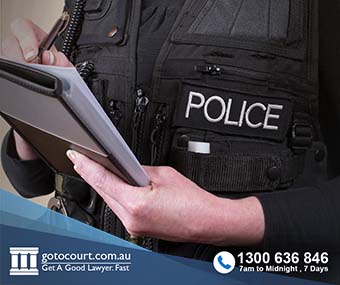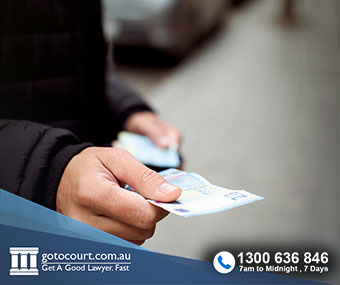Call our lawyers
now
or,
have our lawyers
call you
Child Protection Offender Register in Queensland
Updated on Oct 31, 2023 • 4 min read • 1433 views • Copy Link
Child Protection Offender Register in Queensland
The Child Protection Offender Register in Queensland contains the details of people who have been found guilty of prescribed offences (sex offences, and some other serious offences), against children. Its purpose is to make sure that the police know the personal details and whereabouts of offenders in order to reduce the chances of those persons re-offending and help with future investigations and prosecutions. It is governed by the Child Protection (Offender Reporting) Act 2004.
Who may access the Child Protection Register?
Only people who are authorised by the police commissioner can access the information in the Child Protection Offender Register, and they must only disclose the information to other authorised persons.
Prescribed offences
Prescribed offences are listed in Schedule 1 of the Child Protection (Offender Reporting) Act 2004.
These offences include:
- murder
- penile penetration of a child under 16
- procuring a child including through the internet
- unlawful sodomy
- indecent treatment of a child under 16
- taking a child for immoral purposes
- involvement in child prostitution
- incest
- rape or attempted rape
- having an ongoing sexual relationship with a child
- grooming
- involving a child in making child exploitation material
- making, distributing, or possessing, child exploitation material
- obscene publications and exhibitions
- possession of, or making, an objectionable computer game or film.
Reportable offences
A person may also be added to the Child Protection Offender Register in Queensland if they have been convicted and sentenced for a reportable offence, and the court is satisfied that they pose a risk to the lives or sexual safety of children or (if the offence was a child abduction offence) that it is appropriate to make the order.
Reporting periods
The period for which an offender must report depends on the number of offences committed.
The reporting period is five years if the offender committed:
- one offence or
- more than one offence unless one of the following applies.
The reporting period is 10 years if the offender:
- committed one or more offences and
- has been notified of their obligations and
- is convicted of an additional prescribed or reportable offence.
The offender must report for life if:
- they committed one or more offences and
- have been notified of their obligations and
- are convicted of more than one additional prescribed offence or reportable offence.
Offender details to be reported
If entered into the Child Protection Offender Register in Queensland, the offender must provide the following details to the police:
- their name, and any other name ever used, and when they were known by that name
- their birth date
- address/es where they live
- names and ages of any children with whom they live or have unsupervised contact
- their employment
- involvement in clubs or organisations that have child membership or participation
- all vehicles they own or drive
- permanent distinguishing marks or tattoos including any that have been removed or changed
- any similar offences committed outside of Queensland
- any times they have been in custody in Queensland or elsewhere for similar offences since being sentenced
- any carriage or internet service provider and connection they use or intend to use
- any email addresses, internet or chat room user names, instant messaging names, or other names or identities they use or intend to use
- the number and country of issue for any passport/s.
Reporting obligations
An offender on the Child Protection Offender Register in Queensland must first report within seven days of sentence or their release from custody, whichever happens last.
Offenders who come to Queensland must report within seven days of entry if they stay for seven or more days in a row, apart from any time spent in custody.
After the initial report, unless told otherwise, the offender must report:
- each February, May, August, and November
- within seven days of a change to personal details
- within 24 hours of contact with a child
- if they intend to leave Queensland, before they leave
- if they plan to be away from Queensland for more than seven days, at least seven days before leaving
- if travelling overseas, at least seven days before leaving – they must also produce their passport and travel documents
- after returning and having been in Queensland for seven days in a row, within seven more days.
Penalties
Failure to comply with reporting obligations is a criminal offence. It is also an offence to provide false or misleading information. The maximum penalty for either of these offences is a fine of 300 penalty units, or five years imprisonment.
If you require legal advice or representation in any legal matter, please contact Go To Court Lawyers.


Affordable Lawyers
Our Go To Court Lawyers will assist you in all areas of law. We specialise in providing legal advice urgently – at the time when you need it most. If you need a lawyer right now, today, we can help you – no matter where you are in Australia.How It Works








1. You speak directly to a lawyer
When you call the Go To Court Legal Hotline, you will be connected directly to a lawyer, every time.


2. Get your legal situation assessed
We determine the best way forward in your legal matter, free of charge. If you want to go ahead and book a face-to-face appointment, we will connect you with a specialist in your local area.


3. We arrange everything as needed
If you want to go ahead and book a fact-to-face appointment, we will connect you with a specialist in your local area no matter where you are and even at very short notice.





















